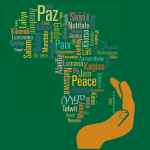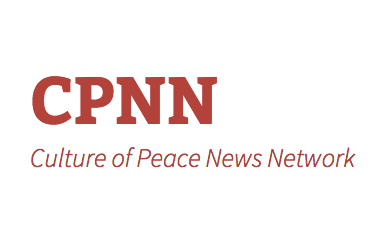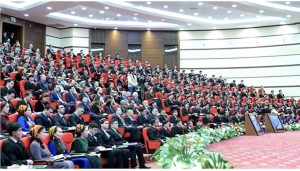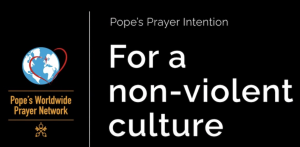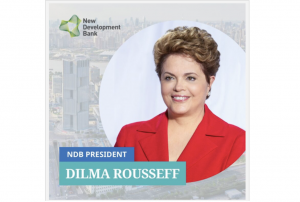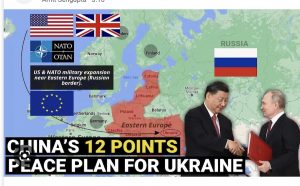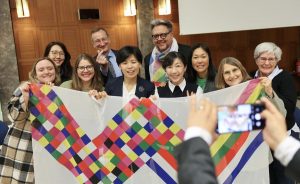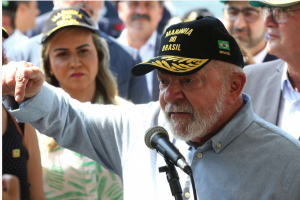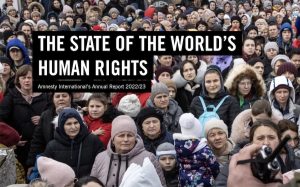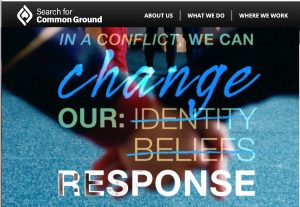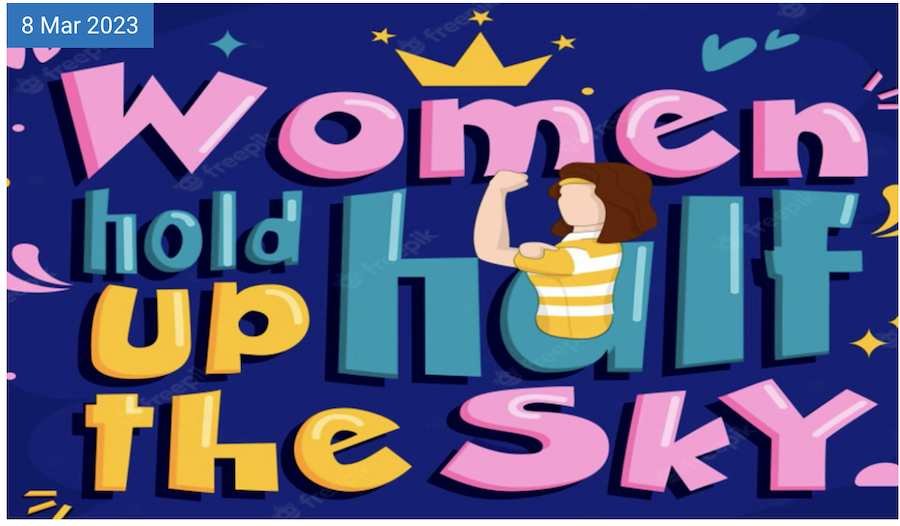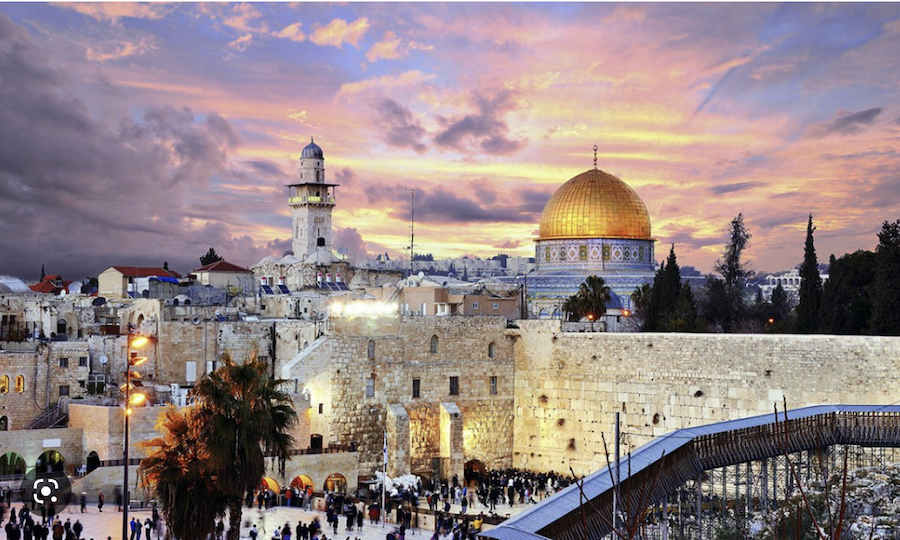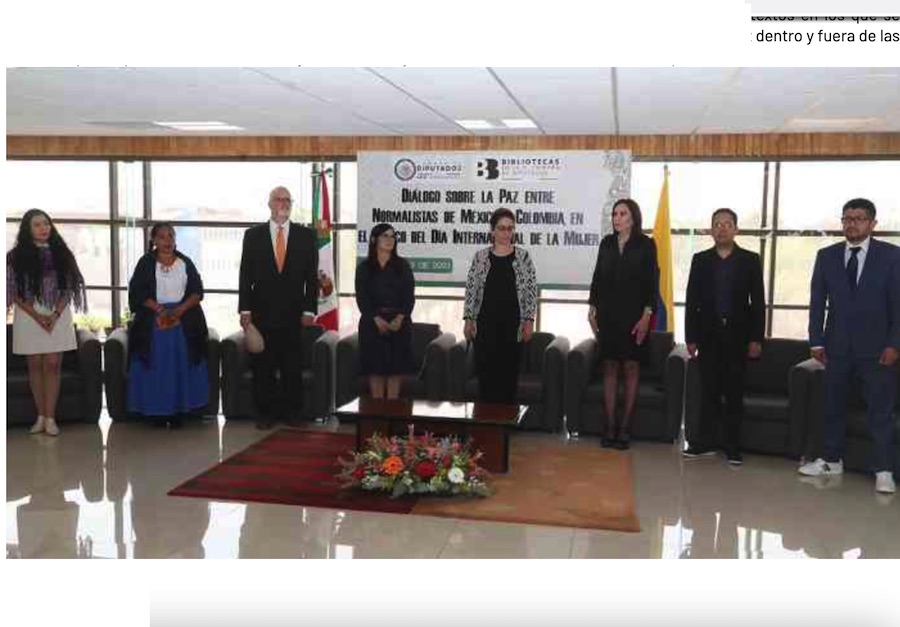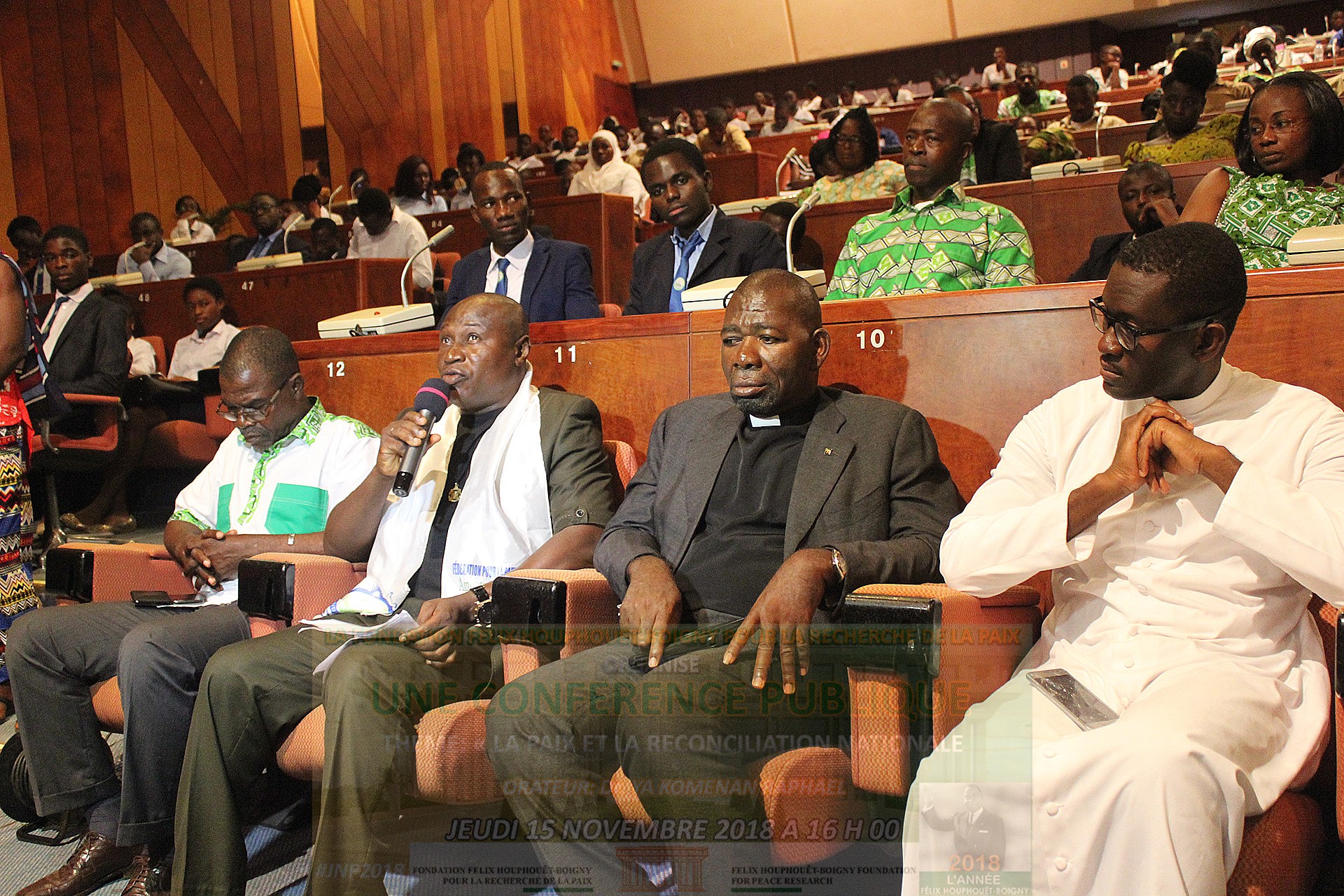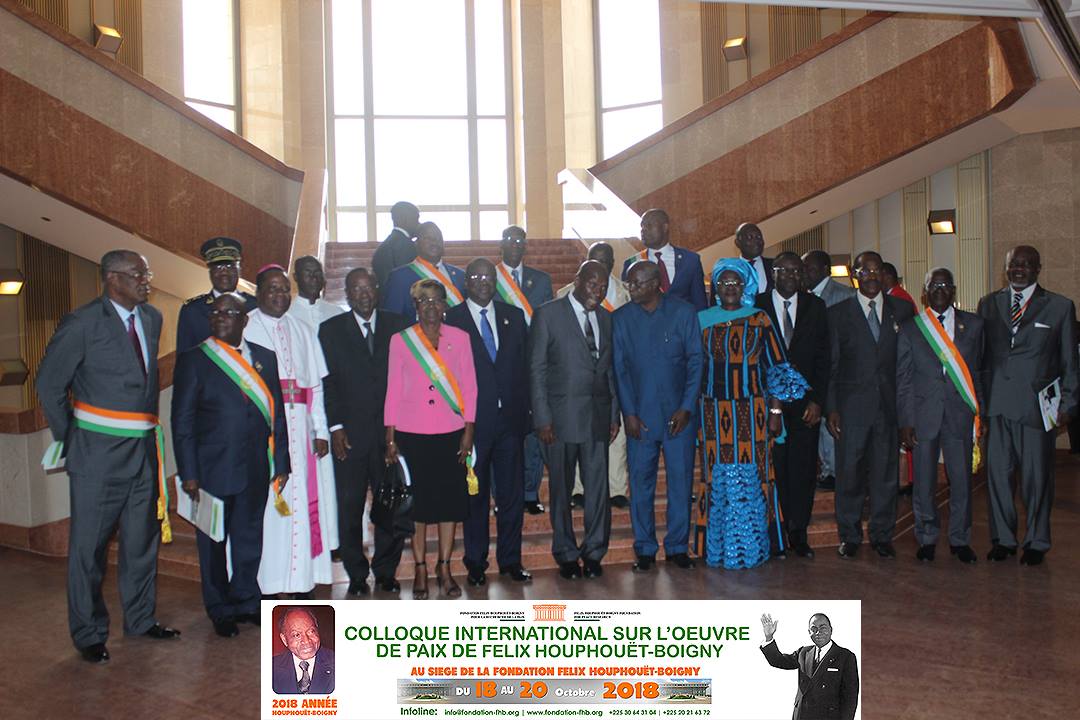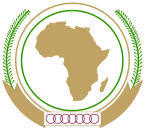-
Welcome to the
Network of Foundations and Research Institutions for the Promotion of a Culture of Peace in Africa
-
The Network's Meetings
News
CPNN (Culture of Peace News Network) newsletter of July 1, 2023
THE PEACEMAKERS
Little has changed since our bulletin of February 17 in which we quoted authorities saying that with the war in Ukraine we are “sleepwalking to Armageddon. This month, Anthony Blinken, the American cabinet minister responsible for foreign affairs, CIA, etc., insisted that the war should be continued because a ceasefire “would legitimize Russia’s land grab. It would reward the aggressor and punish the victim.”
CPNN (Culture of Peace News Network) newsletter of June 1, 2023
To begin the year 2023, we said that one bright spot for the preceding year was the advance of the culture of peace in Latin America and Africa.
Now, as we enter the second half of 2023, we see that this continues; the culture of peace continues to advance on these continents (see discussion : “Latin America, has it taken the lead in the struggle for a culture of peace?”).
We begin on the highest level, the meeting of the G7 countries. While the countries of Europe, North America and Japan continue to promote the culture of war, it was the newly-elected President of Brazil, Luiz Inácio Lula da Silva, who addressed the meeting with a message of the culture of peace. It was Lula a few months earlier, who refused the demands of the United States to contribute to the war in Ukraine, saying that “Brazil Is a Country of Peace.”
Not just words, but actions for a culture of peace mark the first few months of the new administration in Brazil.
With the potential for a major change on the global level, the first event of President Lula da Silva’s visit to China in April was the official swearing-in ceremony of Dilma Rousseff as president of the New Development Bank. The bank is seen as an alternative to the financial hegemony of Washington and Brussels, since it may finance development projects in local currencies instead of dollars. Rousseff, is also a former President of Brazil.
In a meeting with representatives of indigenous peoples, President Lula signed decrees demarcating six new territories for indigenous peoples, the first since 2018 and one of them in a vast territory in the Amazon.
Following a massacre of children at a day care center, the Minister of Justice announced a major national mobilization in favor of a culture of peace, including an inter-ministerial working group to prevent and confront violence in schools.
Along with Argentina, Paraguay, Chile and Peru, Brazil has signed on to a “Declaration for a Culture of Peace and Democracy and for Combating Expressions and Hate Speech” that will lead to a guidelines to be used internally by the signatory countries.
Elsewhere in Latin America, Mexico and Colombia continue to promote a culture of peace.
In Mexico, the city of León will host the First Ibero-American Meeting of Voices for Peace and the First Ibero-American Meeting of Journalism for Peace, to take place from June 1 to 3. The General Coordinator of State Social Communications stressed that Guanajuato will become the epicenter of the culture of peace in Mexico and Latin America (see discussion: “Is there progress towards a culture of peace in Mexico?”)
In Colombia, nine months into new efforts by Colombia’s administration to achieve “total peace” with remaining armed groups following decades of civil war, a network of 140 civic and community organizations is working to end violence. Quoting an activist from this network: “To advance peace, the government will need broad support from both Colombia’s grass roots and its international partners. A top priority in coming months needs to be a national process of dialogues among Colombia’s thousands of community-level civil society organizations.” (See discussion: “What is happening in Colombia, Is peace possible?”)
Meanwhile, in Africa, it is the women who are taking the leadership for a culture of peace. (See discussion:”Can the women of Africa lead the continent to peace?”)
In Kenya, women from Turkana, West Pokot and Marakwet communities have kicked-off talks with their Ethiopian and Ugandan counterparts to take leading roles in the restoration of peace in the North.
In Abuja, the African First Ladies Peace Mission was addressed by Nigeria’s first lady, Aisha Buhari, who emphasised the significance of women’s role in conflict resolution: “As women leaders and mothers, our role in peace and security is to continue to say no to the culture and structures of violence.”
And in Luanda, the Angolan vice-president, Esperança da Costa, opened the 1st International Women’s Forum for Peace and Democracy, to reaffirm and strengthen political commitment to action on gender equality, the empowerment of women and girls and their human rights, ensuring high-level engagement. The forum is part of the Luanda Biennial – Pan-African Forum for the Culture of Peace and Non-Violence, which is a joint initiative between the Government of Angola, the United Nations Educational, Scientific and Cultural Organization ( UNESCO) and the African Union (AU) (see discussion, “The Luanda Biennale: What is its contribution to a culture of peace in Africa?”)
While most of these initiatives are initiated and supported by the national governments of Latin America and Africa, in the long run, the most important is the development of grass-roots and civil society, as described above for Colombia and Kenya. This is especially true for Brazil as described in a recent blog from the CPNN representative in that country. As expressed in the Constitution of UNESCO: “a peace based exclusively upon the political and economic arrangements of governments would not be a peace which could secure the unanimous, lasting and sincere support of the peoples of the world, and . . . peace must therefore be founded, if it is not to fail, upon the intellectual and moral solidarity of mankind.”
FREE FLOW OF INFORMATION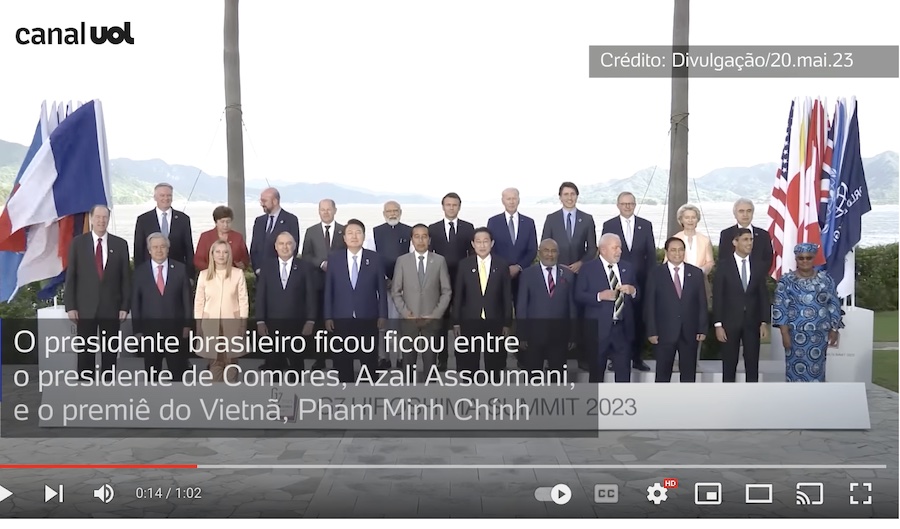 Brazil President Lula’s speech to the G7 |
TOLERANCE & SOLIDARITY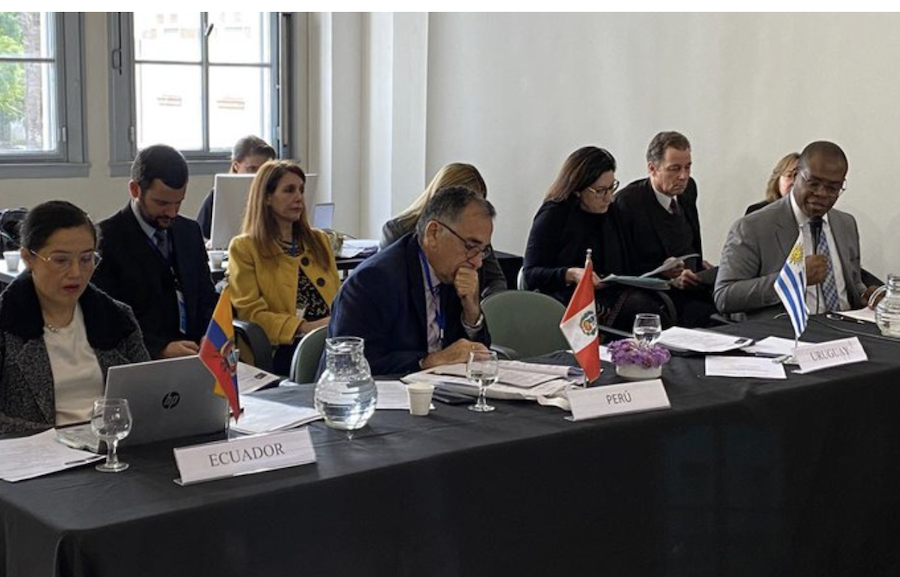 Brazil signs in Buenos Aires declaration to combat hate speech on the internet |
SUSTAINABLE DEVELOPMENT United Nations: Guterres urges countries to recommit to achieving SDGs by 2030 deadline
|
DISARMAMENT & SECURITY Zone of Peace, Trust and Cooperation of Central Asia |
WOMEN’S EQUALITY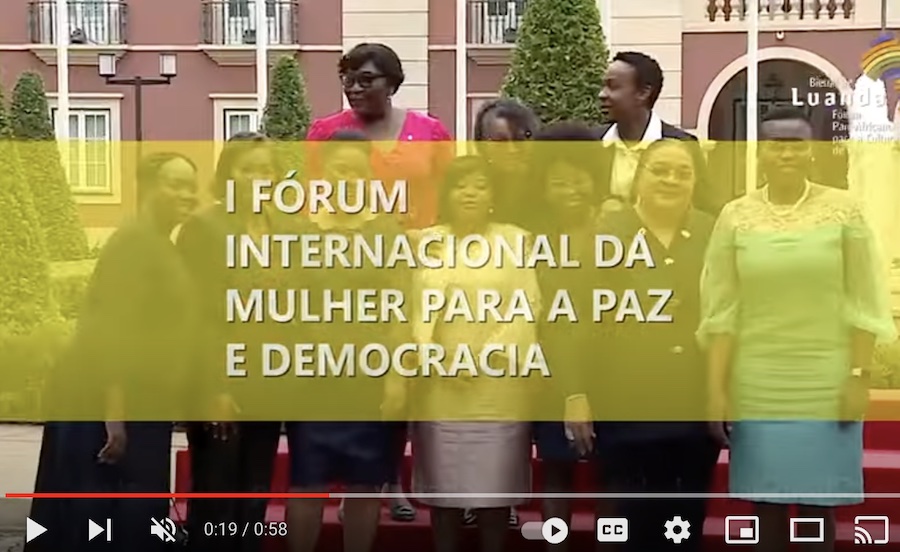 Angola Debates The Women’s Role In Building Peace And Democracy |
EDUCATION FOR PEACE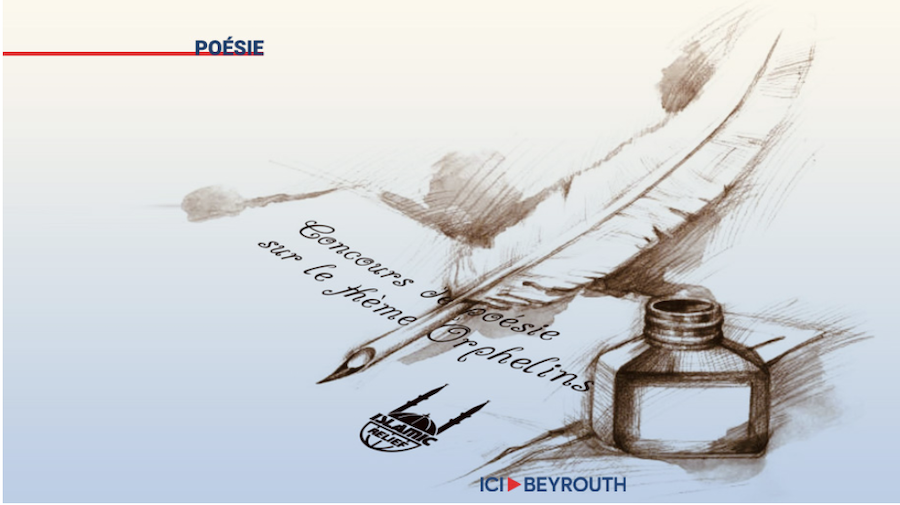 World Movement of Poetry: for the Culture of Peace |
HUMAN RIGHTS The Washington Consensus Supporting Sanctions on Cuba and Venezuela Is Breaking |
DEMOCRATIC PARTICIPATION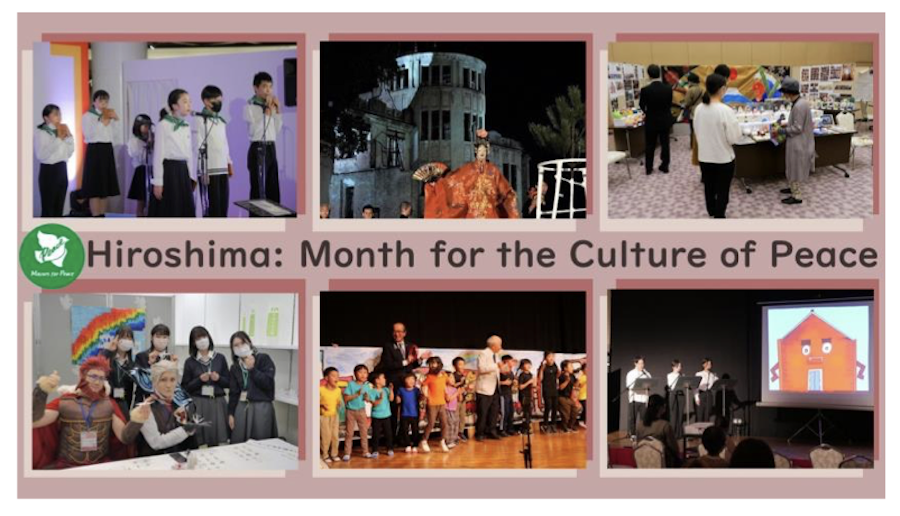 Mayors for Culture of Peace |
CPNN (Culture of Peace News Network) bulletin of May 1, 2023
INTERNATIONAL YEAR OF DIALOGUE FOR PEACE
There has not been very much publicity, but the United Nations General Assembly has proclaimed this year as the International Year of Dialogue as a Guarantee of Peace.
The proposal came from Turkmenistan with 68 co-sponsors including all of the countries of Central Asia, reflecting the fact that these countries are menaced by the nearby war in the Ukraine. The resolution was adopted by consensus although reservations were expressed by the United States, United Kingdom and Ukraine.
In his opening remarks at the launch ceremony in January, Vepa Hajiyev, Deputy Minister of Foreign Affairs of Turkmenistan, said, “Currently, these principles and goals are particularly relevant against the background of the existing systemic problems of international relations. In this context, we see a common task in turning the International Year of Dialogue as a Guarantee of Peace into a powerful constructive process designed to provide an incentive for dialogue, cooperation, and mutual understanding”. Other speakers at the launch ceremony considered the year as implementation of the 1999 International Declaration and Programme of Action on a Culture of Peace.
Concerning the war in Ukraine, a new proposal from China insists that “Dialogue and negotiation are the only viable solution to the Ukraine crisis. All efforts conducive to the peaceful settlement of the crisis must be encouraged and supported. The international community should stay committed to the right approach of promoting talks for peace, help parties to the conflict open the door to a political settlement as soon as possible, and create conditions and platforms for the resumption of negotiation. China will continue to play a constructive role in this regard.”
According to the analysis of the French Mouvement de la Paix, the Chinese proposal was supported by many commentators in the Global South, while it was dismissed by the United States and its European allies. Some Asian countries, however, remarked that China should live up to these principles with regard to Taiwan.
Dialogues for peace are ongoing through the auspices of the International Parliamentary Union, including between opposing sides of the conflicts in Ukraine, Palestine and Cyprus.
Another important voice for peace through dialogue is that of Pope Francis. In a video distributed worldwide on February 6, the Pope states that, “The time has come to live in a spirit of fraternity and build a culture of peace.” In recent years the Pope has stressed dialog for peace with other religions, such as in his meeting with the grand imam of Al-Azhar in Egypt in 2019 and his voyage this year to Africa with the Archbishop of Canterbury and the Moderator of the General Assembly of the Church of Scotland.
In Africa, a continent torn by many armed conflicts, there are important voices for peace through dialogue.
Speaking at a Global Security Forum, General Djibril Bassolé, former Minister of Foreign Affairs of Burkina Faso, caused a sensation by saying “We must dialogue with armed terrorist groups . . . In any case, dialogue is one of the typically African means of settling conflicts and easing tensions. I think that as Africans we must find our own ways to resolve the crises that have undermined our societies.”
With regard to African traditions for settling conflicts, a recent homage to the great poet of Madagascar, Jean Joseph Rabearivelo, underlines that “Through cultural diversity, which should be nurtured by a permanent dialogue without ulterior motives, we are rich in our differences!”
A broad approach of dialogue is being supported in Burkina Faso by the NGO Search for Common Ground. More than 500 participants, including local authorities, religious and customary leaders, and representatives of eight communities took part in an event in March. The strong participation of women, with 300 present, underscored their crucial role. The neighbouring country of Niger has made dialogue with violent extremist groups an important part of its strategy. By including dialogue in its counter-terrorism efforts, Niger is experimenting with an approach similar to those in Algeria and Mauritania , which underpin their decade-long protection against jihadist violence.
In Latin America, where dialogue made possible the peace accords in Colombia, another step forward was taken this month when the dissident rebel group, Estado Mayor Central (EMC), finally agreed to begin peace talks with the government. And in Mexico, also torn by violence, a national peace conference was convened in March by 175 organizations and groups. “We want to talk to each other, listen to each other, understand each other, support each other. We want to imagine and build all possible safeguards to face violence and find all the paths to peace.”
In Europe, where Greece and Turkey have long been in conflict, a new commitment to dialogue was made by the defense ministers of those countries following a joint visit to the areas of Turkey devastated by the earthquake in February.
In Asia, it seems that dialogue for peace can be dangerous. As explained by Al Jazeera, “under South Korean law, citizens are prohibited from contact with North Korean people or organisations unless they receive government permission.” Despite this, South Korea’s two biggest trade unions, the KCTU and the FKTU, signed a joint statement last fall with their sibling trade union in North Korea, opposing US war exercises. The South Korean government responded with a crackdown. In January the national intelligence service raided KCTU offices. Multiple organizers and union leaders were charged under the anti-communist National Security Law, accused of being spies for North Korea.
In a world where there is increasing danger of a nuclear war that could destroy all human civilization, the need for peace through dialogue is greater than ever. Let us hope that all world leaders will engage in this dialogue.
| FREE FLOW OF INFORMATION
United Nations International Year of Dialogue as a Guarantee of Peace, 2023 |
TOLERANCE & SOLIDARITY
Pope’s Video: “Let Us Develop A Culture Of Peace” |
SUSTAINABLE DEVELOPMENT
BRICS: A New Leader’s Big Banking Opportunity to Improve Global Development
|
DISARMAMENT & SECURITY
Mouvement de la Paix: Chinese Peace Plan |
| WOMEN’S EQUALITY
Women peace-makers call for a holistic and sustainable peace |
EDUCATION FOR PEACE
Brazil: Lula creates working group to combat violence in schools |
HUMAN RIGHTS
The State of the World’s Human Rights: Amnesty International’s Annual Report 2022/23 |
DEMOCRATIC PARTICIPATION
Search for Common Ground – Burkina Faso Promotes Community Resilience through Dialogue and Peace Initiatives in Ouahigouya |
CPNN (Culture of Peace News Network) bulletin of April 1, 2023
WOMEN HOLD UP HALF THE SKY
International Women’s Day, March 8, was the occasion for many reports promoting a culture of peace through the election, support and mobilization of women.
A new report by the Inter-Parliamentary Union (IPU) informs that women’s participation in parliament has become more diverse and representative. And for the first time in history, not a single functioning parliament in the world is male-only. Overall, six countries now have gender parity (or a greater share of women than men) in their lower or single chamber as of 1 January 2023. New Zealand joined last year’s club of five consisting of Cuba, Mexico, Nicaragua, Rwanda and the United Arab Emirates (UAE), at the top of the IPU’s authoritative global ranking of women in parliament. Other notable gains in women’s representation were recorded in Australia (the strongest outcome of the year with a record 56.6% of seats won by women in the Senate), Colombia, Equatorial Guinea, Malta and Slovenia.
The annual meeting of the United Nations Commission on the Status of Women was devoted this year to the struggle for women’s equality in access to digital information such as smartphones and internet. Ms. Sima Bahous, UN Under-Secretary-General, listed seven ways in which the struggle needs to be carried out, including digital, science and technology education for girls and women as well as jobs and leadership positions for women in the tech and innovation sectors.
Under-Secretary-General Bahous also addressed a session of the UN Security Council devoted to Resolution 1325 on women, peace and security. She called for more resources to the Women’s Peace and Humanitarian fund, a UN-led partnership that has so far supported more than 900 organizations.
Significantly, the Security Council was chaired by a woman from Africa, the Minister of Foreign Affairs of Mozambique. And the Council was addressed by Bineta Diop of the African Union Commission who advocated a strategy of building a network of women leaders on the continent. “We are ensuring that women’s leadership is mainstreamed in governance, peace and development processes so as to create a critical mass of women leaders at all levels,” she said.
The Security Council heard from Nobel Peace Prize winner Leymah Gbowee from Liberia who recommended steps to engage and partner with local women peace activists, who she called “the custodians of their communities.” “We will continue to search for peace in vain in our world unless we bring women to the table,” she warned. “I firmly believe that trying to work for global peace and security minus women is trying to see the whole picture with your one eye covered.”
Further details about women and peacekeeping in Africa are provided by Martha Ama Akyaa Pobee, assistant secretary-general for Africa at the United Nations, in her reflections for International Women’s Day. In my role at the U.N., I have had the opportunity to visit several countries in Africa affected by conflict. “During one such visit to visit Bamako, the capital of Mali, I met women from all over the country who shared with me their experiences and the challenges in making their voices heard. . . . . In South Sudan, we have women like Alokiir Malual who, after immense efforts and advocacy, made history in 2015 as the first woman to sign a peace agreement. . . . On the other side of the border, in Sudan, our political mission facilitated consultations with women’s civil society groups and leaders on bringing the country back to a civilian-led transition.”
A meeting devoted to African women for peace took place virtually in Nigeria on International Women’s Day. Women from the Northwest and North Central regions of the country discussed women’s leadership role in peacebuilding and the need to accelerate the achievements of women in digital technologies.
In addition to Africa, there were contributions from Latin America, Europe, Asia and the Arab States:
Throughout Mexico, the program of Women Builders of Peace continued to advance as Tlaxcala took first place in the country with with 214 networks in its 60 municipalities, integrating 8,208 women and allies. Making women aware of their rights, promoting gender equality, detecting the main problems in each environment, proposing solutions, promoting solidarity and community work, among other actions, are the main work of these networks.
Throughout Europe, the Women’s Peace Leadership Programme of the OSCE (Organization for Security and Co-operation in Europe) develops networks and sponsors activists such as Bojana Mumin of Bosnia and Herzegovina, who is featured in a CPNN article. As she says, “here I am, speaking in person to one of the WPLP participants from Afghanistan, Elham Kohistani, and other women peacebuilders from so many different regions about their experiences in mediation, leadership and peacebuilding efforts.”
In Sri Lanka, thanks to the support of UN Women and the government of Japan, the country has adopted its first National Action Plan on Women, Peace and Security for 2023-2027. Speaking at the launch of the programme on International Women’s Day, the President of Sri Lanka announced that they will host a meeting of leading women activists from countries of SAARC (South Asian Association for Regional Cooperation) this year to advocate for the inclusion of women’s rights within the organization’s framework.
At the International Peace and Humanity Conference in Jordan, delegations from several Arab countries addressed the role of female leadership in promoting a culture of peace, redressing family structure as it relates to gender norms, building a model civil society, and the role model for contemporary Arab women.
In Essaouira, Morocco, The Women’s World Forum for Peace was launched by the “Warriors of Peace”, a movement of Jewish and Muslim women for peace, justice and equality, on the occasion of international women’s day. A dozen activists representing Morocco, Palestine, Rwanda, Senegal, Liberia and Israel , presented captivating testimonies in which they shared their respective experiences, their actions and peace initiatives. The Forum was addressed by Shirin Ebadi, Nobel Peace Laureate from Iran.
To quote Martha Ama Akyaa Pobee, “Women hold up half the sky, and consequently they have a fundamental right to be part of discussions and decision-making that define the future of their families, communities and countries.”
| WOMEN’S EQUALITY
Women Hold Up Half the Sky |
TOLERANCE & SOLIDARITY
Azueï: the union of Dominicans and Haitians through art |
SUSTAINABLE DEVELOPMENT
Historic UN Ocean Treaty agreed – Greenpeace statement
|
DISARMAMENT & SECURITY
Egypt, Jordan, Algeria, Palestine, Arab League reiterate commitment to supporting Al Quds |
| FREE FLOW OF INFORMATION
Mexico: 175 organizations and groups convene a National Peace Conference |
EDUCATION FOR PEACE
Mexico: Meeting for a culture of peace in teacher training schools held in San Lázaro |
HUMAN RIGHTS
Amnesty International: Human Rights wins in 2022 |
DEMOCRATIC PARTICIPATION
New report of Inter-Parliamentary Union shows that women MPs have never been so diverse |
The Network Meetings
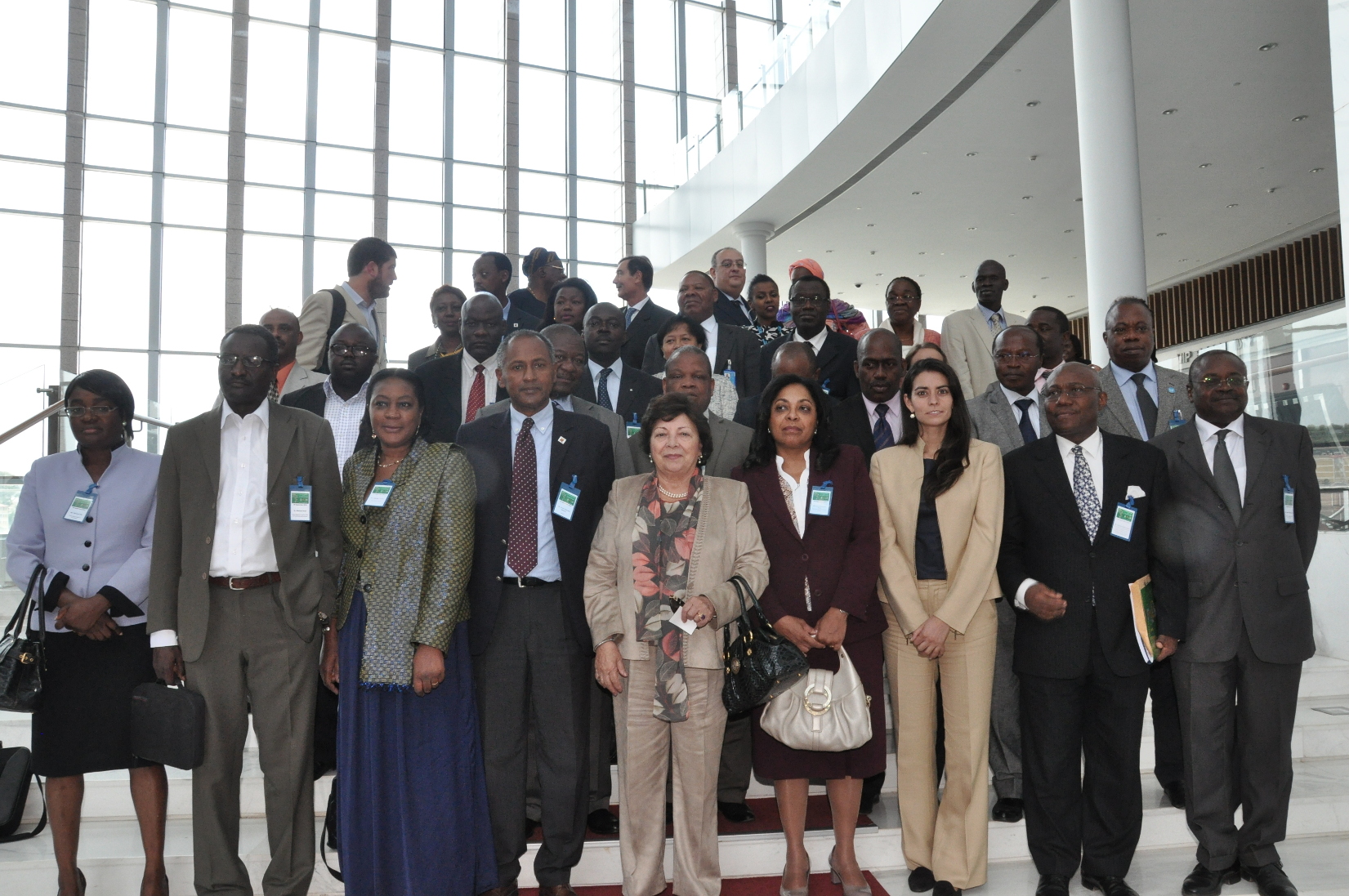
Links
FESA-UNESCO International Conference, December 12-13, 2016, Luena, Angola
Third Meeting of the Network September 11-12, 2015 in Soyo, Angola
Second Meeting of the Network, from September 21 to 24, 2014 in Yamoussoukro, Côte d'Ivoire
Network Creation Meeting on September 20, 2013 in Addis Ababa, Ethiopia
Text Resources
- Call for Papers HARIS 2 JUNE 2021
- Report of the 5th Meeting of Members of the Network held on 21 September 2019 in Angola on the sidelines of the Luanda 2019 Biennale for the Culture of Peace
- Activity Report 2019
- Program of the Luanda Biennale
- DRC the six-day war in Kisangani
- Insecurity in the Masisi in Eastern DR Congo
- General Report of the Houphouet Boigny Foundation International Conference, October 20, 2018
- RAPPORT FINAL DE LA CONFERENCE FESA-UNESCO SUR LE THEME "PREVENTION DES VIOLENCES ET PROMOTION DE LA CULTURE DE LA PAIX EN PERIODE ELECTORALE EN AFRIQUE" LES 12 ET 13 DECEMBRE 2016 A LUENA EN ANGOLA
- BULLETIN DE L’UNION AFRICAINE (UA) ET DE LA CORNE DE L’AFRIQUE (HOA) du 1er juin au 31 Août 2017
- LES STATUTS DU RÉSEAU
- RAPPORT D'ACTIVITÉS 2014 - 2015 DU RÉSEAU
- RAPPORT D'ACTIVITÉS 2015 - 2016 DU RÉSEAU
Welcoming Remarks
You are welcome to visit the website of the Network of Foundations and Research Institutions for the Promotion of a Culture of Peace in Africa.
The Network was created at the end of the Addis Ababa meeting on September 20 and 21, 2013 with a view to "creating a continental and sustainable peace movement capable of mobilizing African States, the private sector, African artists and leaders, international organizations and regional development actors as well as NGOs and grassroots associations". It is currently composed of 44 African and non-African organizations listed here.
You will find on our website articles, publications, photos and videos concerning the promotion of the Culture of Peace on the African continent. We also keep you informed about upcoming events.
